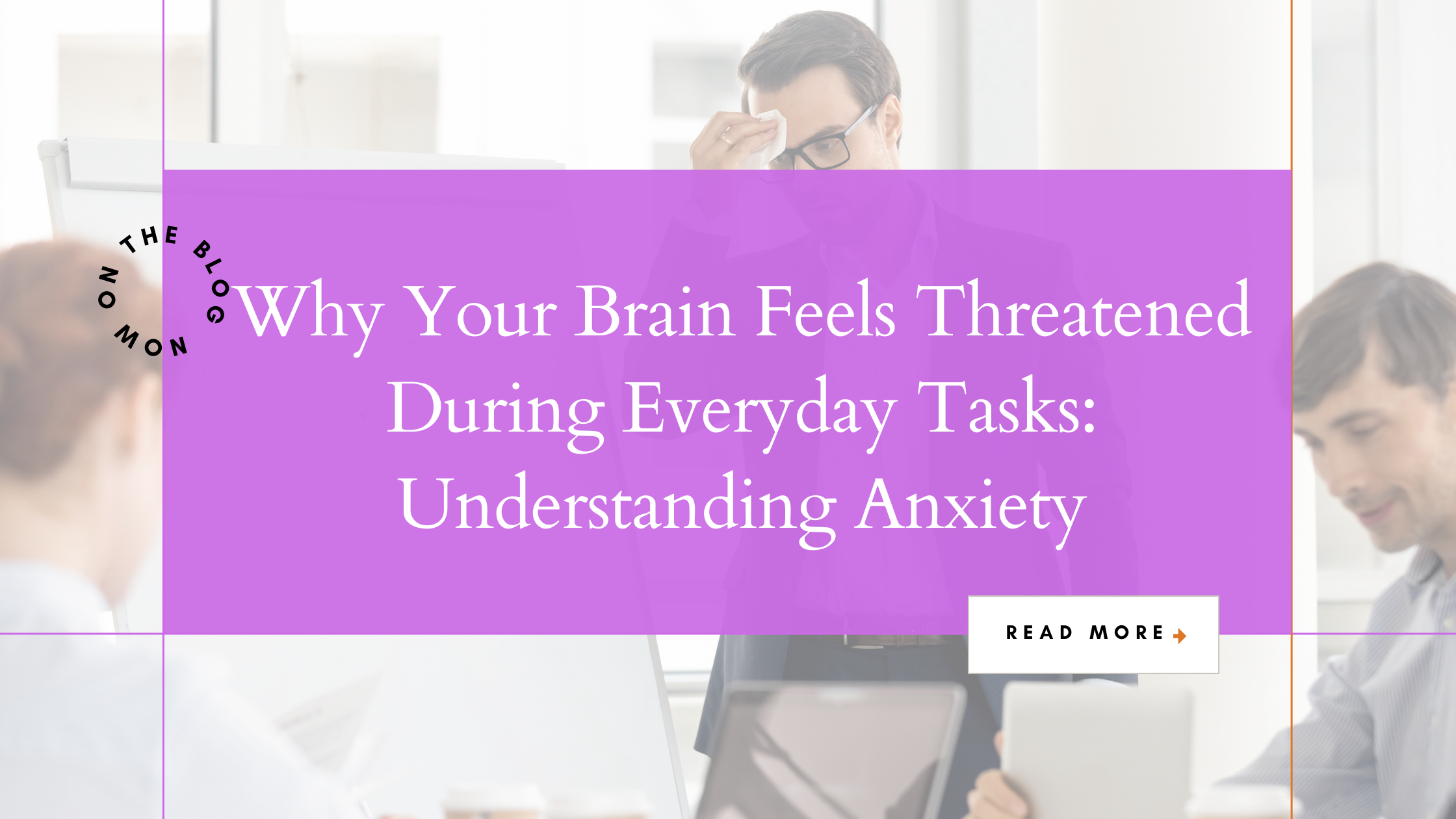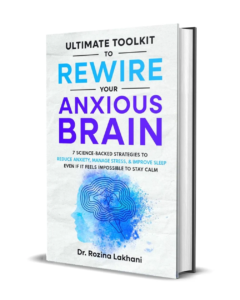
Have you ever thought to yourself, “Why does my body act like I’m in danger, even when I’m not?”
Maybe your heart races before a meeting, your stomach churns when you open your inbox, or your mind spirals before a simple presentation.
If you’ve wondered “What’s in it for me if I keep reading?” Here’s your answer: you’ll discover why your brain sometimes hijacks you with anxiety, even in safe situations. More importantly, you’ll start to understand that it’s not your fault, it’s your brain’s built-in alarm system. And once you know how it works, you can learn how to calm it down.
The following is an excerpt from my upcoming book, The Ultimate Toolkit to Rewire Your Anxious Brain — a practical, science-backed guide to help you take back control from anxiety.
What Causes Emotional Alarm in the Brain? Meet the Amygdala
“Why do I feel under attack?” Sarah asked. “When all I’m doing is preparing for a presentation?”
Lisa leaned back. “That, my dear, is your amygdala — your brain’s overzealous security guard. Always on alert, even when the threat is tiny… or imaginary.”
Imagine your brain as a city. In the middle sits the amygdala — a small, almond-shaped structure in the limbic system, your brain’s emotional center.
The amygdala is your fire alarm, constantly scanning for signs of danger. Sensing a threat, it sounds the alarm before your thinking brain has time to process it.
“It’s like someone burned toast in the kitchen,” Lisa said, “and the whole building gets evacuated.”
Sarah chuckled. “So my brain basically freaks out over toast?”
“Exactly. It can’t always tell the difference between a real fire and a false one. And in an anxious brain, that alarm goes off way too often — during a grocery run, a work meeting, or even while scrolling your phone.”
Lisa added, “The amygdala is part of a team. It works closely with the hippocampus, which stores emotional memories, particularly those related to fear. Together, they form part of the limbic system — your brain’s emotional core. The amygdala rings the bell, and the hippocampus reminds it why it’s scared.”
Grandpa John chimed in. “Like it flips open an old chapter and starts reading aloud. Without asking.”
From Science to Your Everyday Life
What does this mean for you? It means that those racing thoughts and pounding heartbeats aren’t signs of weakness, they’re signs of an ancient system trying (and sometimes failing) to protect you. By learning how your brain’s alarm system works, you can begin to spot the false alarms and use tools to quiet them before they take over.
If this resonated with you, you’re not alone. Your brain isn’t broken, it’s just doing its best to keep you safe, even if it sometimes overreacts. The good news? You can train it to respond differently, and that’s exactly what my new book will help you do.
Want to be one of the first to read the full book before it’s released? I’d love for you to join my Advance Reader Copy (ARC) Team. You’ll get early access, behind-the-scenes insights, and the chance to help others with your simple review.


